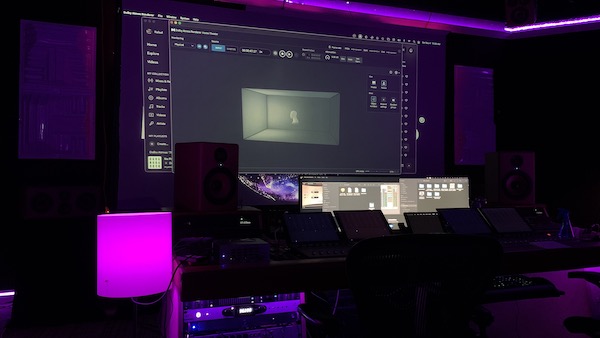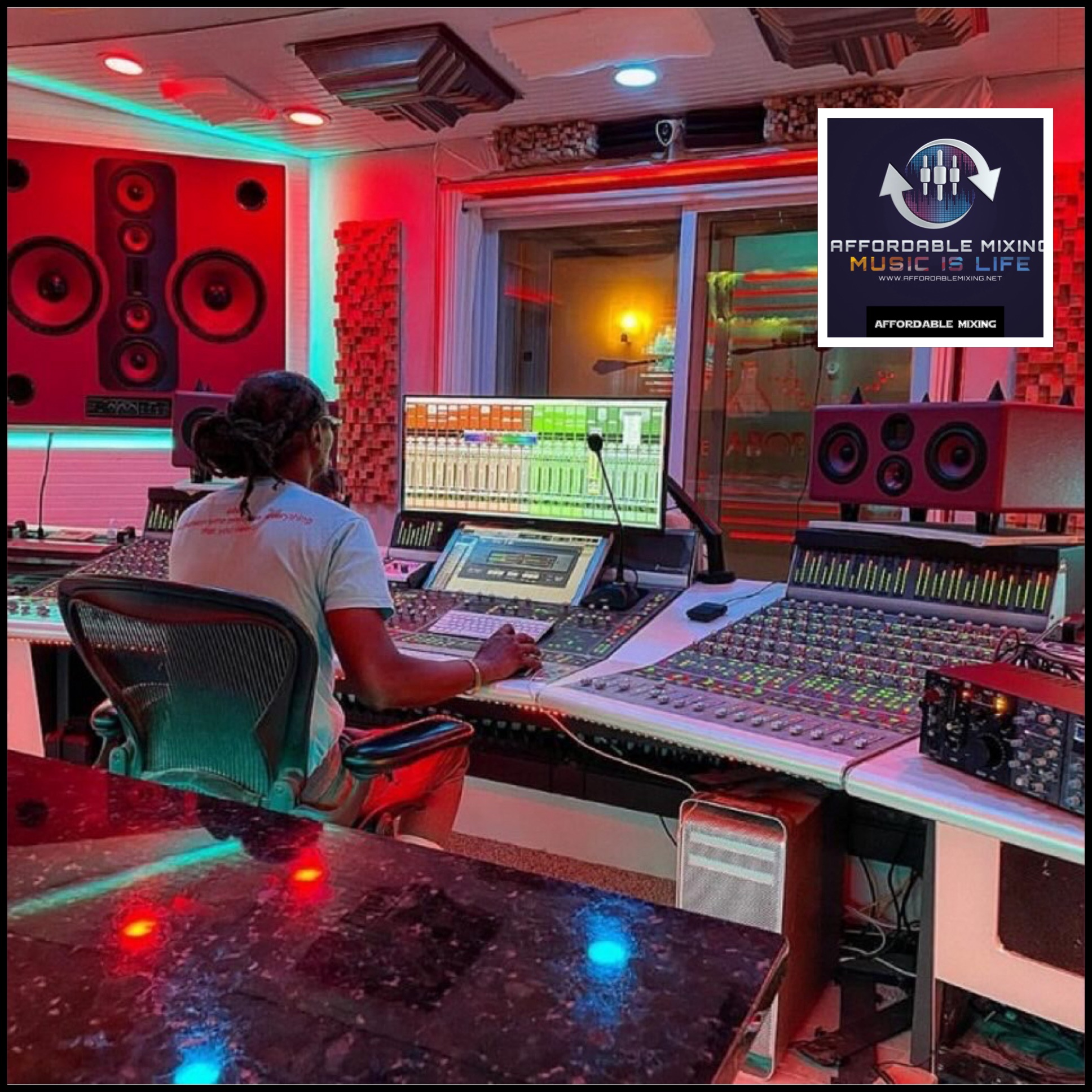Beat Making and producing music is one of the toughest tasks you might encounter yourself doing. Especially when you are a beginner in the field. While it’s important to experiment and find your unique sound. Avoiding these common mistakes mentioned in the blog can help you achieve cleaner and more professional results. Many recording studios Atlanta professionals agree with these points.
In this blog, we will discuss the 10 major things that you need to avoid to produce the perfect track.
1. Overcomplicating the Things:
The urge to overpopulate, and pack too many elements in one beat- just because you feel like, is not ok. This is one of the most common mistakes that beginners in the field fall into.
Layering your music beat with different elements is good, and adds depth to your output.
However, if you add a lot of elements into a single beat. It will end up being cluttered, a muddy mix, and something that lacks focus.
So, what to do?
It is simple, just focus on what is essential from your music’s point of view. Whether it is a strong rhythm, a catchy melody, or a tight bass. Having a well-placed sound, or space in your product can convey a lot more emotions than too many elements combined.
Try muting different layers while listening to your beat to understand what’s truly needed. The simpler your music sounds, the better it will convey the emotions and attention of your listeners. This is a technique often used in music studios Atlanta sessions.
Make sure you remember: Less is often considered more in music.
( Also Read About – Mastering the Mix: The Inside Secrets of Recording Studios )
2. Neglecting Sound Selection:
Doesn’t matter how good of compositional skills you have. If you have poor sound choices, no way your music is gonna taste nice, it will break the flow of the track. If you are overlooking the importance of good instruments. And using the low-quality or mismatched samples, synths, or drum kits. It can make your music sound amateur.
Your choice of instruments directly impacts the feel and identity of your beat. Your choice of kick, snare, hi-hats, and instruments, everything matters.
So, it is very important to choose and use high-quality instruments. That is perfect for your genre and complements each other. Take your time auditioning different sounds, and vocals, and then finalize what feels best to you.
You can try asking yourself these questions, to be better at decision-making:
- Does this snare fit the vibe?
- Does this synth clash with the vocals?
Try creating folders for different go-to sounds, and then make your final decision of which one suits your music genre. Always trust your ears—if something feels off, it probably is. This approach is standard practice in music studios in Atlanta Georgia.
3. Skipping Gain Staging:
Having proper gain staging quite helps. It ensures that all the sounds in the track are at optimal levels before they hit the mixing stage or effect chain.
Overlooking this stage is not a good sign for your music. If you do overlook this process, your music may end up getting distorted, clipped, or an unbalanced mix.
But, what exactly is this gain staging stage?
See, gain staging is all about how you manage headrooms, and avoid signal distraction throughout your workflow. It helps in keeping all the levels of your music properly checked, from designing your sounds to preparing the final output.
Make sure to use your DAW’s meters to monitor input and output levels. And apply gain adjustments early in the signal chain. To make this situation clear, you can think of this stage as a clean canvas before you even start adding elements, and colors.

4. Overusing Effects:
Different music effects like reverb, delays, and distortion help in adding volume, richness, and character to your track. However, if you overuse these effects, it may result in drowning out your music track.
Over-applying anything is harmful, whether it is music or any other industry. Over-applying effects in your track can make it sound muddy, and amateur, which no one wishes for.
Instead of slapping reverb on every track, consider which instruments need space and depth.
Make use of EQ for carving out the reverb tails, and for applying the side chain compressions, to keep the dry signals up front.
It is preferred to use the music effects creatively, automate delay throws, and pan your reverbs for stereo width. And make sure you use subtle distortion in order to add warmth to your track. The best recording studios Atlanta facilities have specialized equipment for this purpose.
5. Ignoring Arrangement and Song Structure:
You can have the best loop in the entire world, however, if you lack progression or a structured arrangement, it is all a waste. Your track will turn out to be monotonous. For making a beat that’s perfectly great, you need movement- it should evolve, surprise, and resolve.
Start by understanding the flow of the song, and the genre it conveys- intro, verse, chorus, bridge, outro. And make use of transitions, FX sweeps, drum fills, and drop-outs in order to keep your listeners intact.
6. Forgetting to Reference Other Tracks:
Reference tracks always need to be perfect. Usually, the reference tracks are professionally mixed, and mastered songs. That you can use in order to compare your work against.
This is very important for assessing whether your music is perfectly balanced, is loud enough, and has clarity. If you skip this step, your music may sound either too dull or too aggressive. Music studios in Atlanta Georgia often provide reference tracks to help producers with this step.
( Read More – Latest Studio Recording Trends and Technologies )
7. Producing In Isolation:
Producing in isolation, means you have no feedback on how good or bad of a track you are composing. Working solo can help you gain your creativity, however not having any feedback can limit your growth.
Producing in isolation can bring you so close to your track that you might turn a blind eye to the flaws. So, to avoid this, share your beats with fellow producers, musicians, or even your audience. Being open to constructive criticism helps you highlight and overcome the flaws that you might have overlooked.

8. Not Saving Presets and Project Versions:
When you feel like you have produced great music or a track, do this first thing- Save it ASAP! Save every version of the music track that feels good to you, especially if you are about to make a major change to it.
If you neglect this, you might lose ideas or make irreversible mistakes. Having different versions of your track lets you explore creatively without fear of ruining your project.
9. Ignoring the Importance Of Mixing And Mastering:
If you think your music can shine bright without properly mixing and mastering, well you are wrong here. Mixing helps in balancing your music track, while the mastering stage helps in preparing your track for distribution. Ignoring either stage can lead to a flat, imbalanced, or underwhelming final product. Many music studios Atlanta professionals specialize in these crucial final steps.
10. Not Taking Breaks or Resting Your Ears:
Your ears are precious, and the most valuable tools in the entire music production process.
Having long sessions without resting your ears for a few minutes can lead to ear fatigue. Which as a result can cause you to make poor mixing or sound design choices.
So, take a few steps away from your DAW, and rest. And come back with fresh ears to spot issues you might have missed and make more objective decisions.
Conclusion:
Beat Making and producing music is one of the toughest tasks you might encounter yourself doing. Especially when you are a beginner in the field. While it’s important to experiment and find your unique sound. Avoiding these common mistakes mentioned in the blog can help you achieve cleaner and more professional results. If you’re serious about your music, consider booking time at recording studios Atlanta to get professional guidance.
In this blog, we discussed the 10 major things that you need to avoid to produce the perfect track.

